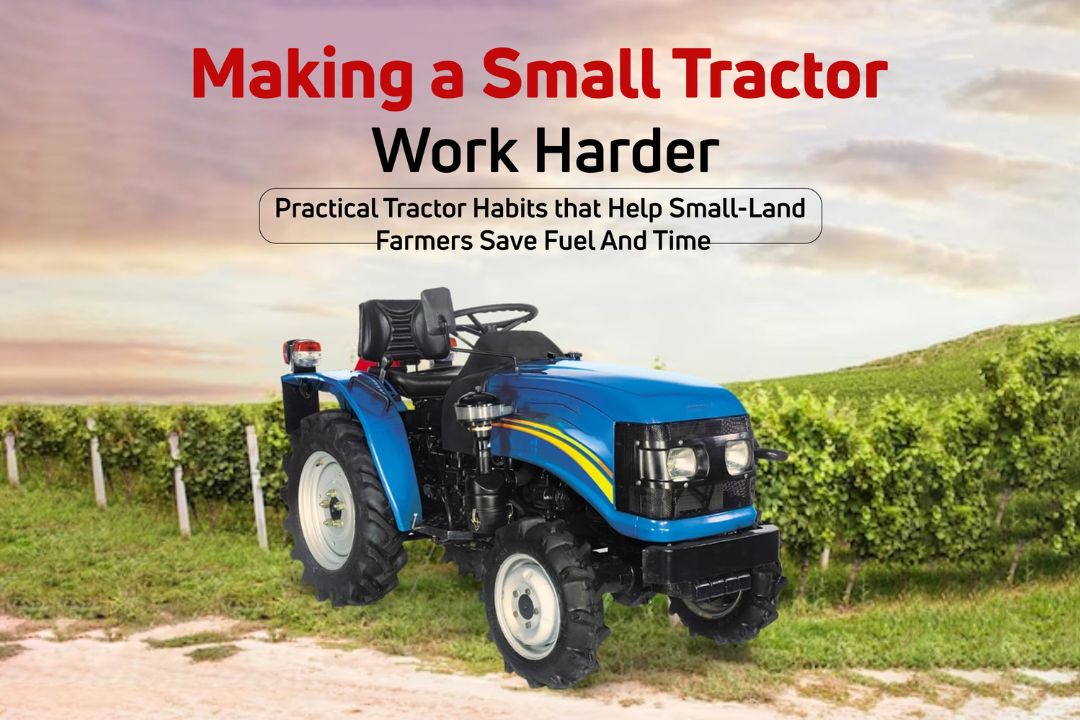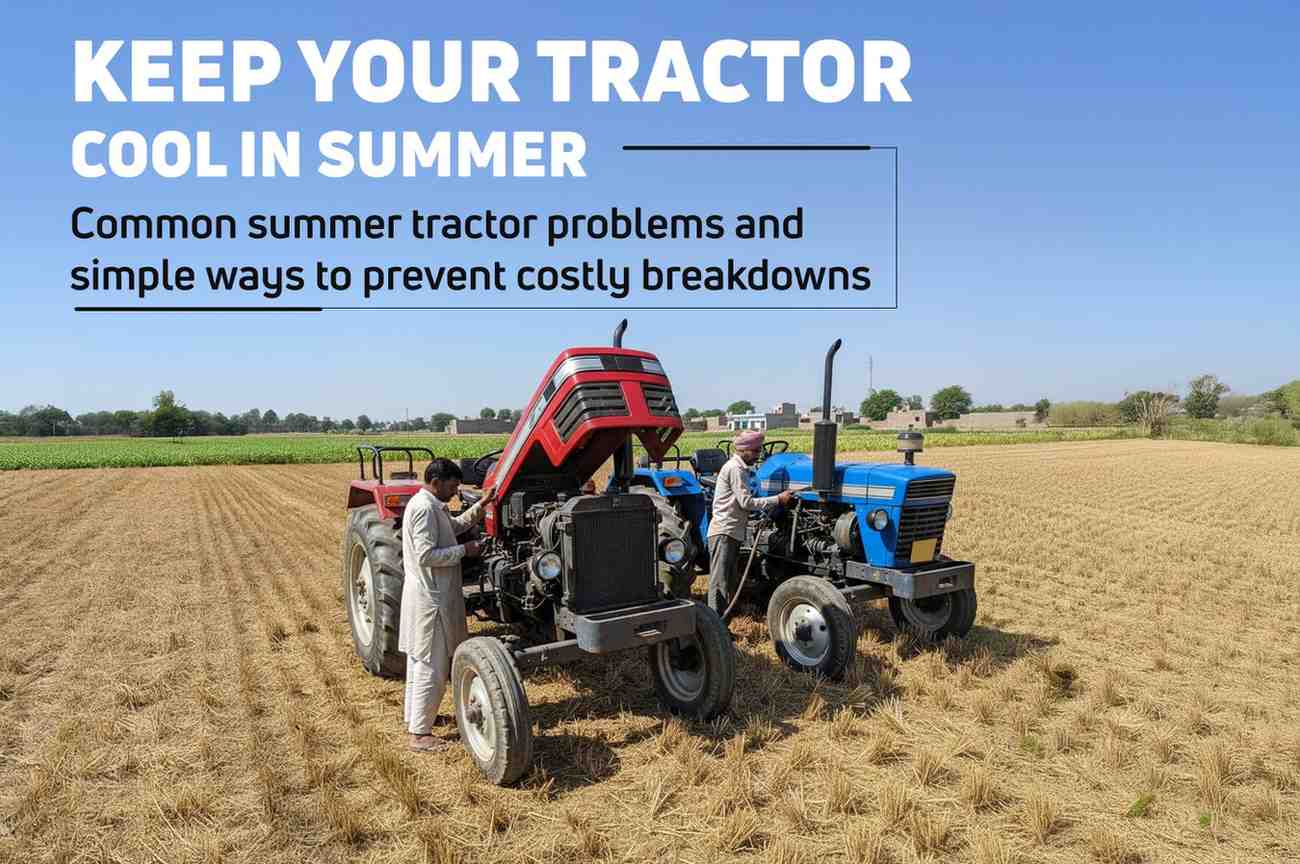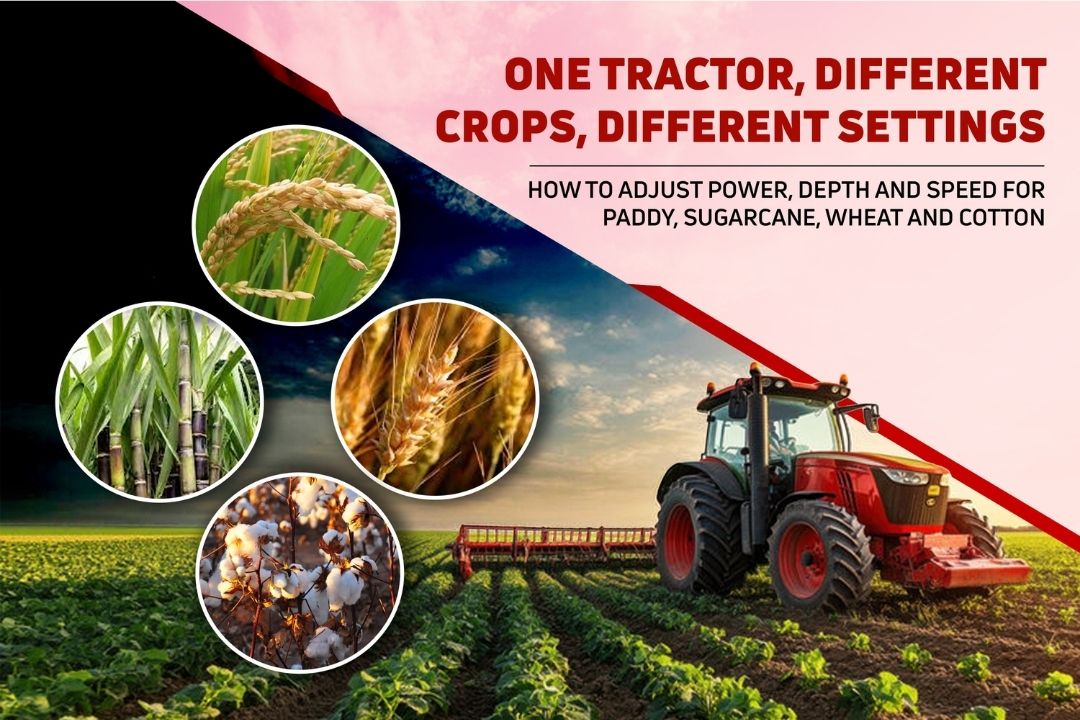
Why Horsepower is an important factor in Tractors?
Horsepower (HP) is an important factor in tractors because it indicates the power and performance capabilities of the tractor’s engine. Tractors are widely used in agriculture and other industries for various tasks, such as plowing, planting, harvesting, and hauling heavy loads. The amount of horsepower of a tractor tells its ability to perform challenging tasks efficiently. The high amount of HP boosts the efficiency of a tractor allowing it to operate at lower RPM for the same workload, saving fuel and reducing wear and tear. Tractor engines with more power save time, cover more ground quickly and are essential for large farms. They accomplish tasks quickly, maximizing productivity and time management. But bigger isn’t necessarily better; for small farms, an excessive HP may be overkill, increasing expenses and wasting fuel. For your particular needs and land size, select the appropriate HP.
Here are some points why horsepower is crucial for a tractor:
Work Capability – Various degrees of power are needed for different agricultural jobs. For example, hauling big machinery or plowing through difficult soil requires a significant amount of horsepower. A tractor with sufficient horsepower may complete these jobs faster and more efficiently. Horsepower provides power for attached equipment of tractors like Plows, mowers, and trailers. With increased horsepower, it becomes possible to utilize larger and more demanding equipment to effectively manage tasks like deep tilling or transporting heavy loads.
Efficiency – Greater horsepower frequently results in more productivity and faster job completion times. When tractors have enough power, they can operate efficiently, doing jobs more quickly and using less fuel. A tractor’s increased horsepower aids in overcoming obstacles from the ground, the surrounding environment, and any attached tools while operating. Greater HP overcomes obstacles, particularly in difficult situations like steep inclines, rough dirt, or big loads.
Versatility – Applications for tractors are numerous and range from basic fieldwork to more intricate jobs. A tractor with sufficient horsepower can be used for a variety of tasks in a range of agricultural operations. Choosing the right HP allows you to handle a wider range of tasks to increase the tractor’s versatility.
Compatibility with Implements – Tractors frequently operate in conjunction with a variety of tools and attachments. Required horsepower ensures that a tractor can effectively provide power for these implements and allow farmers to use the necessary tools for specific tasks.
Productivity – A tractor with the appropriate power can increase farm output as a whole. It enables farmers to complete tasks more efficiently to cover larger areas and to complete the task before deadlines during critical phases of the agricultural cycle.
Investing for future – Selecting a tractor with slightly higher HP than your current needs provides headroom for future expansion to tackle unforeseen challenges and it protects your investment in the long run for the use of additional tools or implements.
Undersized HP –Small or insufficient horsepower can cause annoyance, inefficiency, and even harm to tractors or their operators if they are overloaded.
Tractor horsepower (HP) is a key component that defines how well a tractor can do various agricultural chores. In agricultural operations, productivity is enhanced by variety, efficiency, and the proper quantity of electricity. But it’s crucial to keep in mind that power isn’t necessarily superior. Selecting the appropriate HP for your unique requirements is essential. Therefore, choosing the right horsepower for your tractor requires careful consideration of variables including farm size, and particular jobs.





